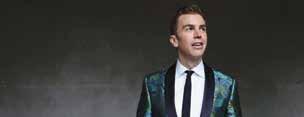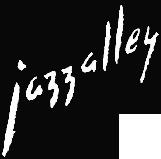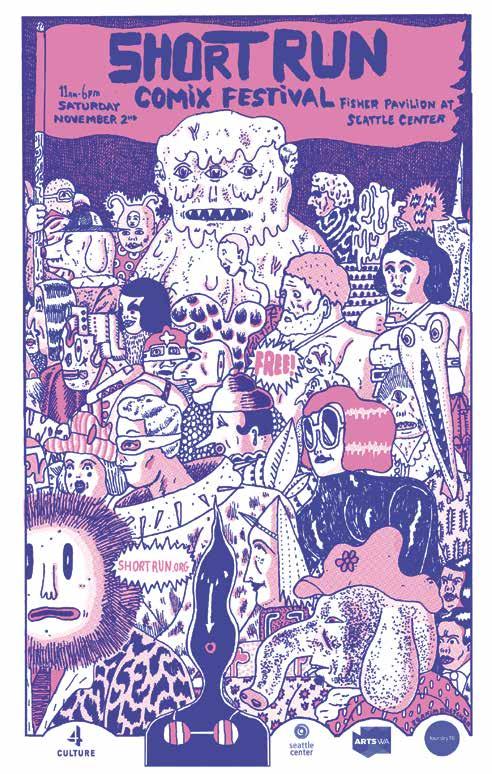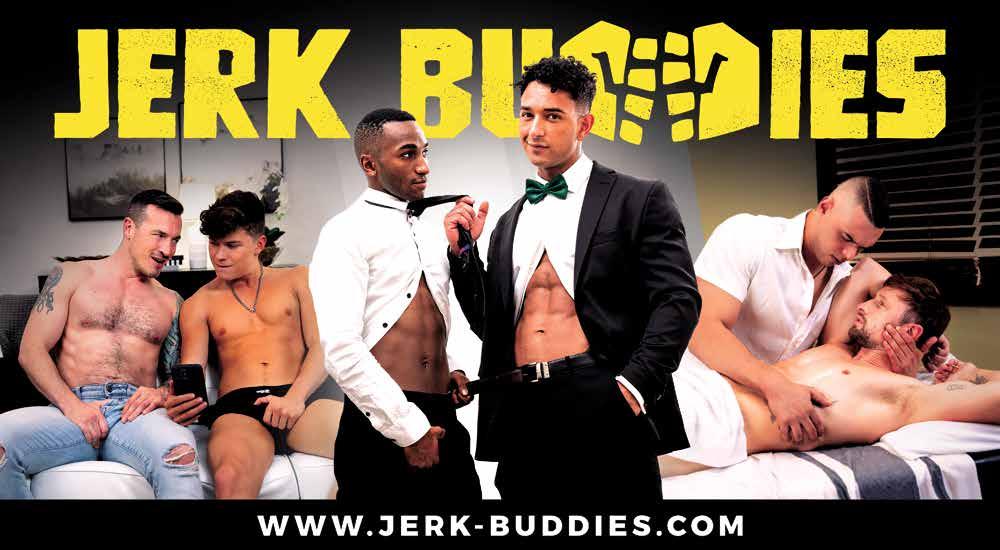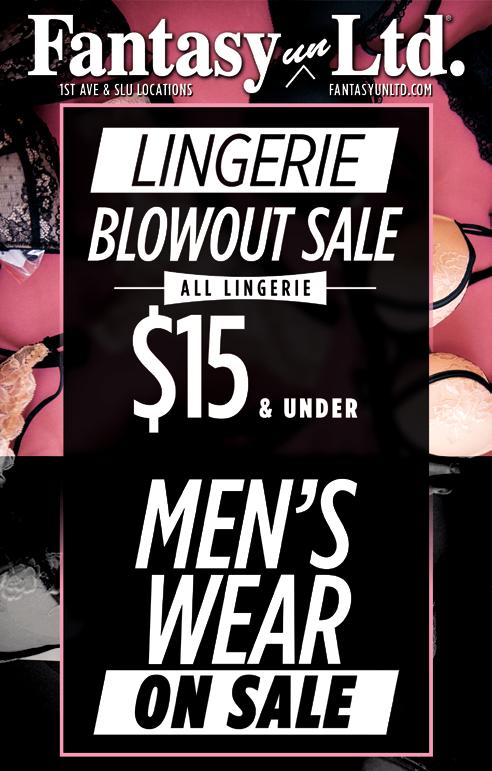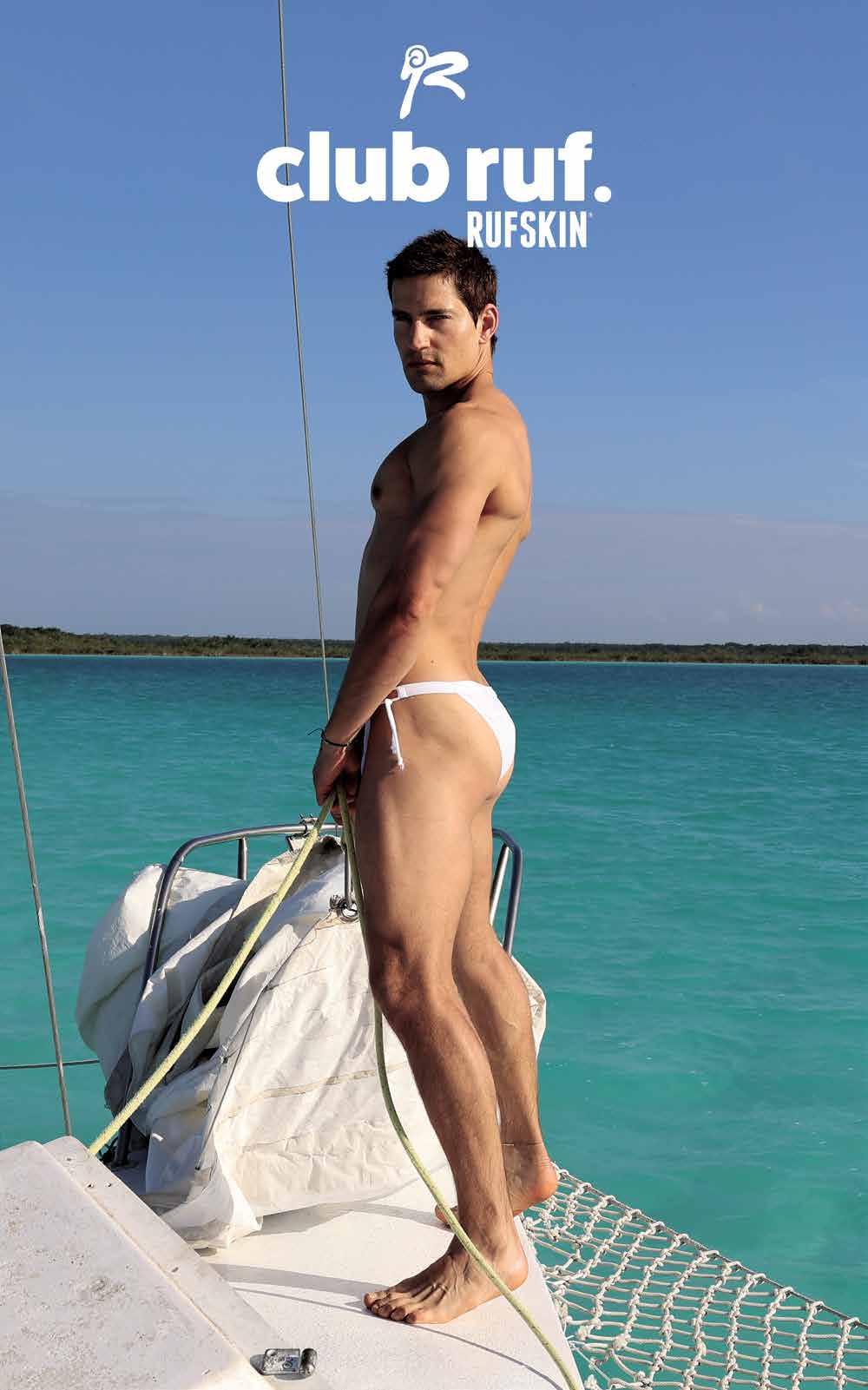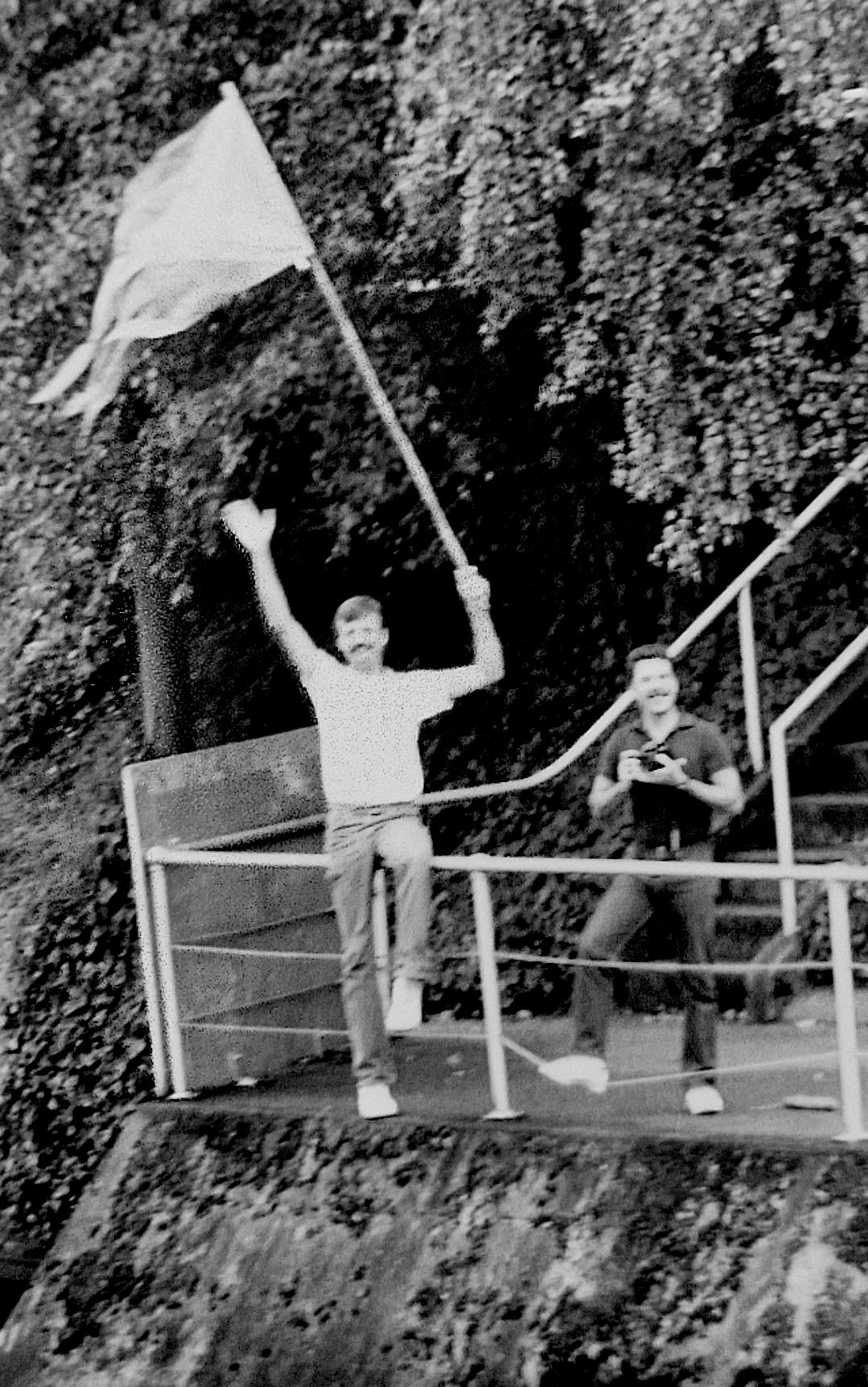





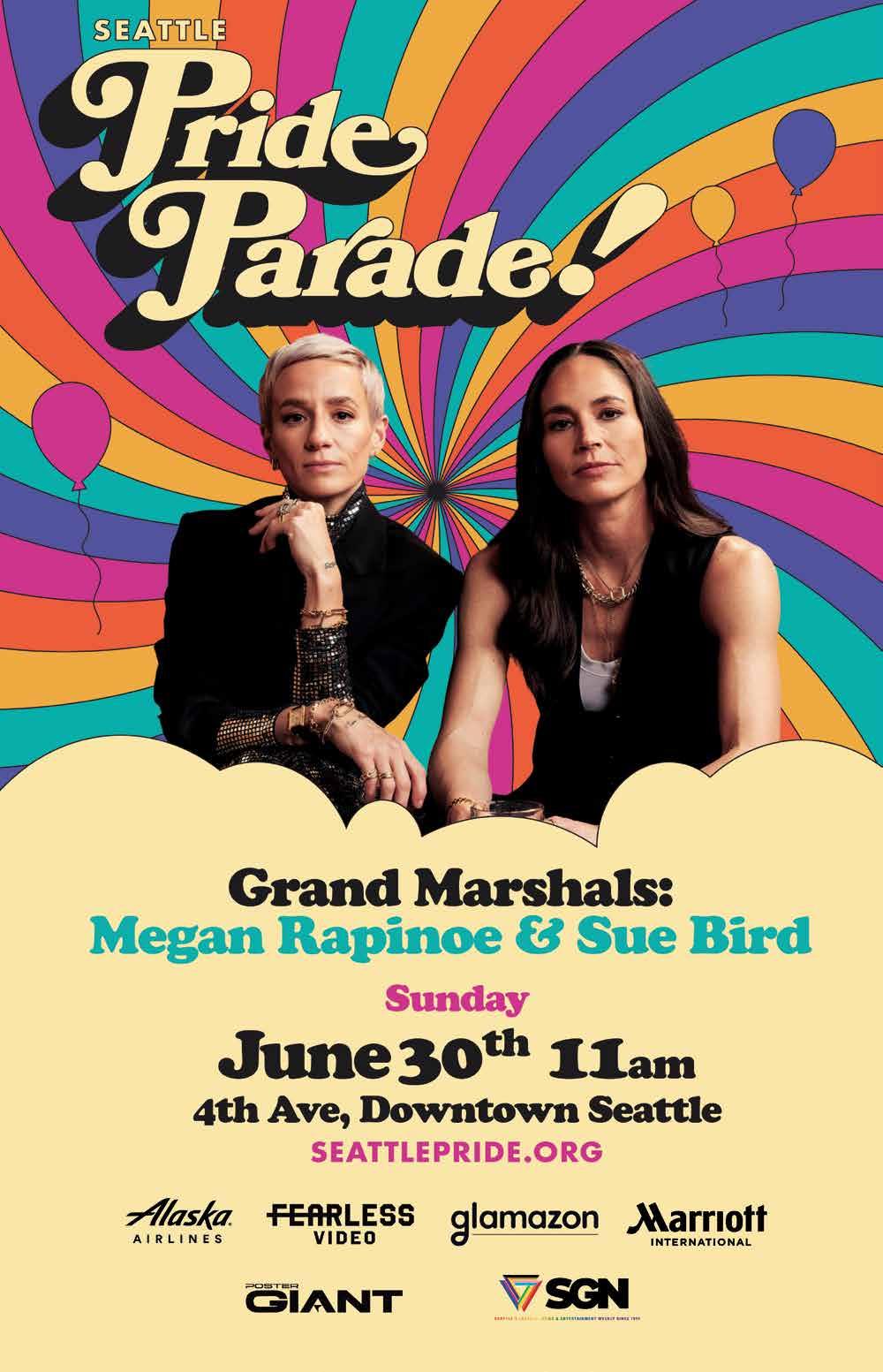

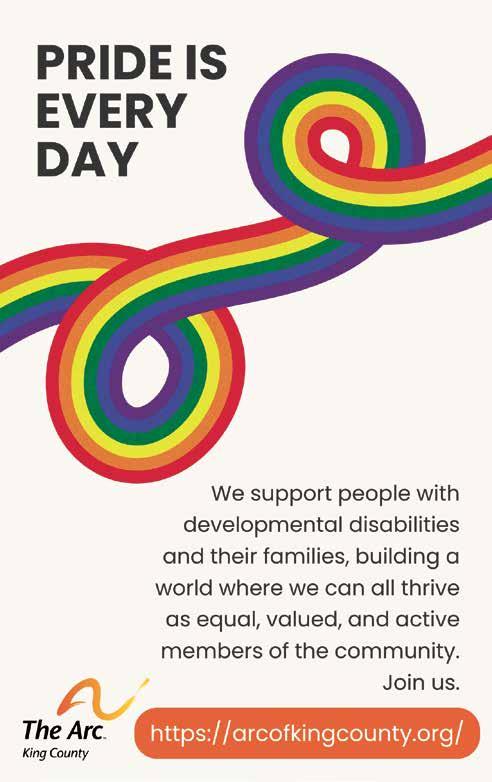
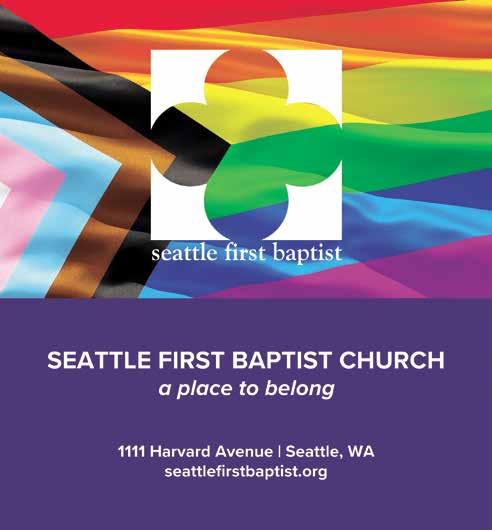

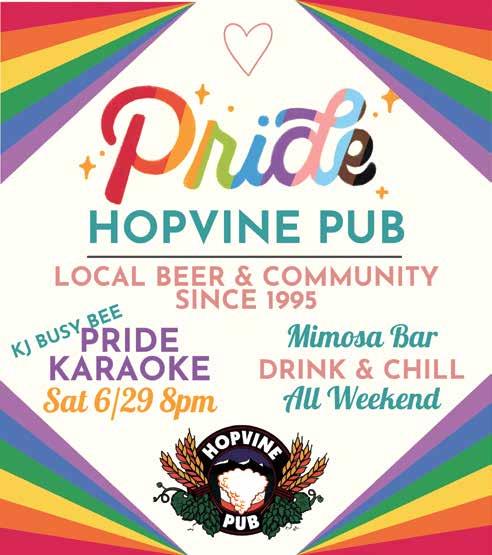
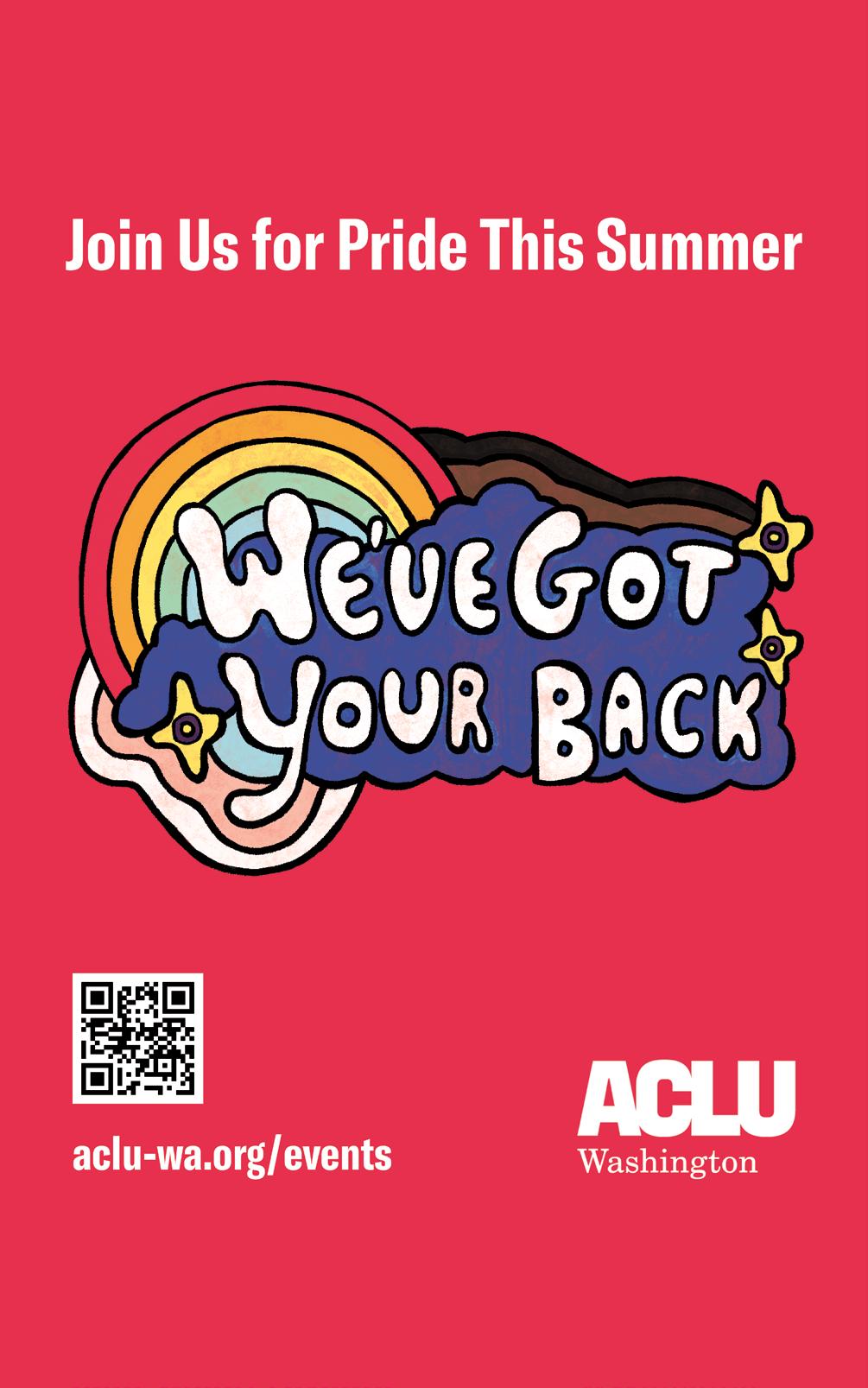
BY MATT NAGLE SGN CONTRIBUTING WRITER
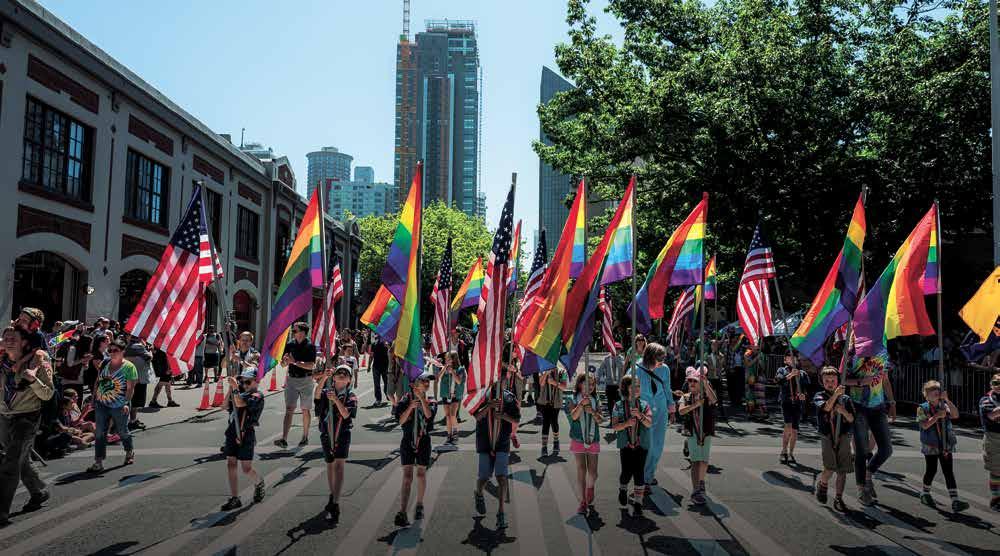
This year marks a milestone for Pride in Seattle. It was 50 years ago when members of the city’s LGBTQ community gathered (the same year as the SGN ’s debut) in the spirit of the Stonewall uprising, and ever since then, Seattle Pride has hit the streets each June.
With so much to celebrate, the Seattle Pride organizing team is bringing a full lineup of events for Queers and allies of all ages. This year’s theme is “NOW!” — an embodiment of our community’s rallying cry from those early years when “Out of the closets and into the streets!” inspired many brave souls to cast off oppression and unite as a determined force to be reckoned with NOW!
Pride is our state’s largest parade, with more than 250 local and national community groups, nonprofits, and companies taking part, along with civic leaders, brands, and businesses. The main event will be the downtown Pride Parade on Sunday, June 30. It starts at 10 a.m. with a pre-show at Westlake Park then steps off at 11 a.m. and travels along Fourth Avenue to Denny Way. Nearby, PrideFest will be underway at Seattle Center, from noon to 8 p.m.
The parade route will feature three stages — at Westlake Park, Fourth and Lenora, and Fourth and Denny Way — two alcohol gardens, and food trucks. Sit down and enjoy the parade from the front row in bleacher-style grandstand seating available for purchase in advance. ADA priority seating is available to those with accessibility needs (plus two other persons in their group, regardless of accessibility needs); these seats must be reserved in advance at https://SeattlePride.org.
New this year, Seattle Pride presents the Official Seattle Pride Parade Drag Brunch & Viewing Party on the rooftop patio of Hilton Motif Seattle’s Frolik Kitchen above the parade starting line. From 10 a.m. to 2 p.m., indulge in the elevated paradewatching experience with performances by Amora Namor, Brandi Marx, Bruno Baewatch, Dion Dior Black, Kara Sutra, Kylie Mooncakes, and Viper Fengz. Enjoy drinks and a brunch buffet with drag entertainment and DJ Wes Wunder spinning five decades of Pride anthems. Tickets start at $80. More details are at https://SeattlePride.org.
Grand marshals
This year’s parade grand marshals are Seattle sports legends Sue Bird and Megan Rapinoe, both of whom quickly became beloved Queer icons and role models for their outstanding athleticism. Bird is a five-time Olympic gold medalist and four-time WNBA champion point guard for the Seattle Storm and the league’s all-time leader in assists. Rapinoe is a two-time soccer World Cup
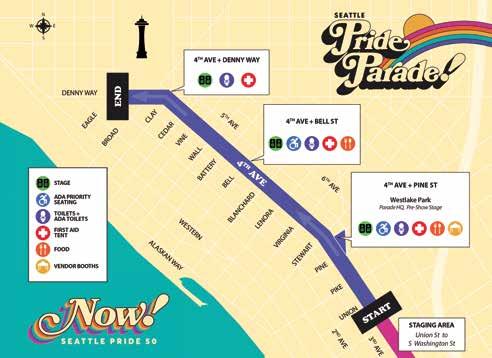

champion and Olympic gold medalist and a fan favorite on and off Seattle Reign’s pitch.
“We are beyond excited that Sue and Megan will be serving as grand marshals,” said Seattle Pride Executive Director Patti Hearn. “These two exceptional women are champions in their respective sports, champions for the Queer community, and role models for future generations of LGBTQIA+ leaders. They are the perfect grand marshals for our 50-year milestone.”
The star duo shared a joint statement: “We’re honored to be named grand marshals for the Seattle Pride Parade and look
forward to seeing everyone on parade day. It’s humbling to be recognized in our city that we love, and as part of a community with such a rich LGBTQIA+ history. It’s going to be an incredible celebration of love and acceptance.”
The parade’s grand marshal contingent is an intergenerational mix of LGBTQ elders and youth that includes David Neth, organizer of Seattle’s first Gay Pride Week; and representatives from community groups, including Camp Ten Trees, GenPride, Lambert House, Seattle’s LGBTQ+ Center, and Seattle Public Schools.
Pride Weekend events
Friday, June 28
• Trans Pride at Volunteer Park, 5:309:30 p.m. Info: https://transprideseattle.org
• Wildrose Street Party, 1021 E. Pike St., 6 p.m. to 2 a.m. Info: https://strangertickets. com
• Queer/Bar Street Party, 1518 11th Ave., 5-11 p.m. Info: https://queerpridefestival. com
• Kremwerk, 1809 Minor Ave., 9 p.m. to 2 a.m. Info: https://kremwerk.com
• The Cuff Pride Street Festival, 5 p.m. to 12 a.m., 1533 13th Ave. Info: https:// seetickets.us
• Union Pride Street Party, 4 p.m. to 2 a.m., 1009 E. Union St. Info: https:// unionseattle.com
Saturday, June 29
• PrideFest Capitol Hill, Broadway, noon-8 p.m., Info: https://seattleprideguide. com
• Dyke March, 5-7 p.m. rally, 7 p.m. march. Info: https://seattledykemarch.com
• Wildrose Street Party, 1021 E. Pike St., 1 p.m. to 2 a.m. Info: https://strangertickets. com
• Queer/Bar Street Party, 1518 11th Ave., 5-11 p.m. Info: https://queerpridefestival. com
• Kremwerk, 1809 Minor Ave., 9 p.m. to 2 a.m. Info: https://kremwerk.com
• The Cuff Pride Street Festival, 4 p.m. to 12 a.m., 1533 13th Ave. Info: https:// seetickets.us
• Union Pride Street Party, 12 p.m. to 2 a.m., 1009 E. Union St. Info: https:// unionseattle.com
Sunday, June 30
• PrideFest Seattle Center, 305 Harrison St., noon-8 p.m. Info: https://seattlecenter. com
• Seattle Pride Parade, downtown 4th Ave., 11 a.m. to 4 p.m. Info: https:// seattlepride.org
• Wildrose Street Party, 1021 E. Pike St., 1 p.m. to 2 a.m. Info: https:// strangertickets.com
• Queer/Bar Street Party, 1518 11th Ave., 5-11 p.m. Info: https://queerpridefestival. com
• Kremwerk, 1809 Minor Ave., 9 p.m. to 2 a.m. Info: https://kremwerk.com
• The Cuff Pride Street Festival, noon10 p.m., 1533 13th Ave. Info: https:// seetickets.us
• Union Pride Street Party, 12 p.m. to 2 a.m., 1009 E. Union St. Info: https:// unionseattle.com

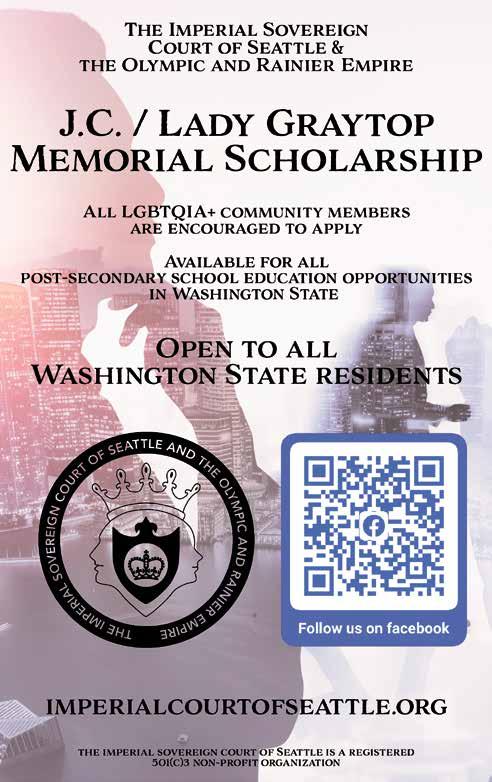

The Seattle Gay Clinic: How it began, and its underappreciated legacy
BY TIM BURAK SPECIAL TO THE SGN
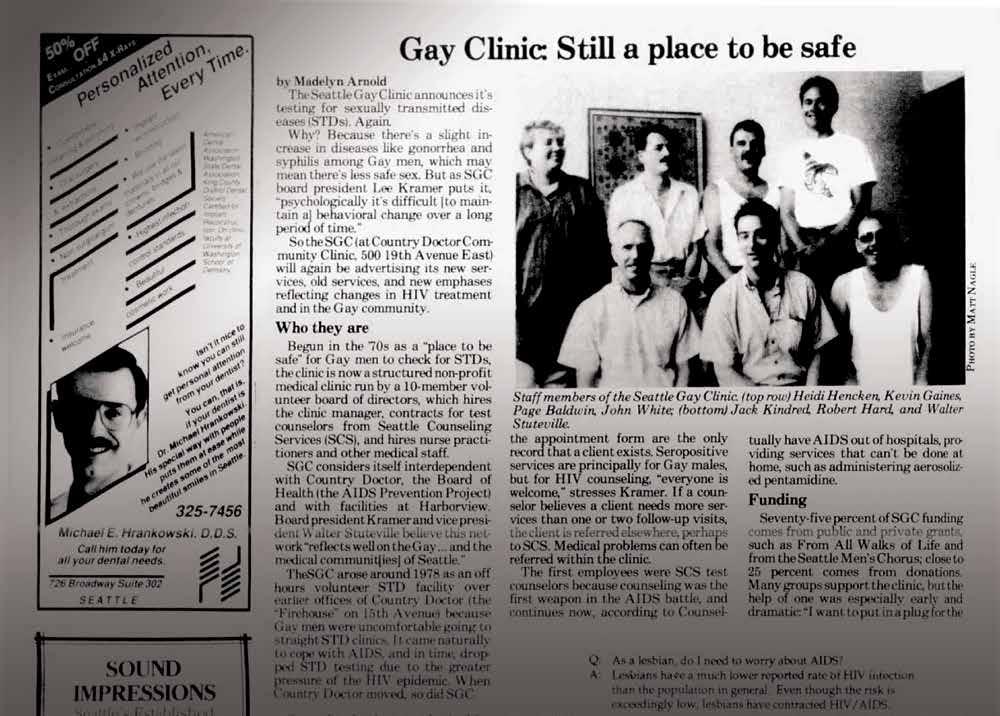
In 1979, a young Gay man named Jim Skeen moved to Seattle from Washington, DC, where he had worked as a volunteer at a clinic that tested and treated men for sexually transmitted diseases (venereal diseases, or VD, which was the term used in those days). He had hoped to volunteer at such a clinic in Seattle, but when he asked around, he learned there was no such thing in his new city.
So he placed an ad in the Seattle Gay News, looking for people who might be interested in organizing a local Gay clinic. He called a meeting, at which several people showed up — Gay doctors, nurses, and nonmedical people who were willing to be trained as paraprofessionals to perform screening tests for gonorrhea and syphilis, two diseases that were prevalent in the local Gay male population.
Prior to this, the only options Gay men in Seattle had for such testing were the local Health Department’s VD Clinic and physicians in private practice. Some were wary of using the Public Health clinic, given that homosexual behavior had only recently been decriminalized in Washington state, and the it was located downtown in the Public Safety Building, which also housed the Seattle Police Department and the city jail. Others felt that there were few physicians who were knowledgeable enough about Gay sexuality to treat Gay men with competence and respect.
This small group met regularly and figured out how to incorporate this new clinic entity, using the nonprofit umbrella of the Gay Community Social Services organization, and taking the legal title of Seattle Clinic for Venereal Health. There had been some concerns that a clinic with the word “Gay” in its title might have trouble raising funds from donors. But, except for the fiscal formalities, the clinic would be called Seattle Gay Clinic (SGC).
The early years
So, where to locate this new clinic’s activities? Organizers approached the Country Doctor Clinic, which since the early ’70s had operated in a firehouse, Station Seven, on the corner of 15th Avenue East and East Harrison Street on Capitol Hill. The surplus building had been turned over by the City to Country Doctor and an organization called Environmental Works.
Country Doctor agreed to let the Seattle Gay Clinic use its exam rooms and waiting area on Saturdays and Wednesday evenings. There were a few glitches that had to be ironed out, such as how to keep SGC’s supplies and files separate from Country Doctor’s, but a cooperative agreement was worked out.
Volunteer doctors, nurses, and lab techs trained Gay laypeople, called “screeners,” to take samples from clients and to prepare the specimens for testing at the Health Department’s laboratory. A system was devised whereby SGC clients could register using a coded system of numbers and letters, so that their records could remain anonymous. Clients would phone to get their test results, and would then be offered treatment and follow-up, if needed.
Within a couple of years, a cadre of about 50 volunteers had been recruited, and working in rotation, they were able to screen and test about 20 patients per halfday session.
By this time, Gay clinics had become established in several cities around the United States, and Seattle’s joined the National Coalition of Gay STD Services, which published a national newsletter that allowed the clinics to share their various approaches. SGC also produced a monthly newsletter for its volunteer staff, keeping them abreast of local and national news relating to the sexual health of Gay men.
The clinic held fundraisers, including dances and bar parties, to support its operational expenses, and formed a friendly partnership with the Imperial Court of Seattle, which held drag shows to raise money for the clinic. Activities like these served to raise community awareness about the clinic and its services, and also brought new volunteers into the fold. In many cases, participation in SGC volunteer work helped people to further their coming-out process, and many gained skills that they wouldn’t otherwise have had a chance to develop.
doctors
Many of the men who came to the clinic for STD services didn’t have regular doctors who could evaluate and follow them for other medical conditions, or provide general primary care. One of the SGC
volunteers took on the project of compiling a list of physicians who would be able and willing to provide medical care for Gay men. He developed a questionnaire designed to survey local physicians and to elicit information on their readiness and preparedness to provide care in a nonjudgmental fashion, and the King County Medical Society agreed to send it out to all its members. The response was greater than expected, with over 70 doctors agreeing to take referrals. Their names, areas of specialty, and contact information were compiled and published in a booklet called “Directory of Gay-Sensitive Physicians,” which was handed out to SGC clients.
The epidemic begins
At about this time, screeners at the clinic were beginning to notice that some clients were exhibiting enlarged or painful lymph nodes, a condition called lymphadenopathy. Harborview and the University of Washington had begun one of the first studies in the US on how this condition affected Gay men, and SGC staff referred clients with swollen lymph nodes to participate in it. In time, this condition would be recognized as one of the precursors to what would later become known as AIDS.
The first cases of AIDS (originally called Gay cancer, or Gay-Related Immune Deficiency (GRID)) were reported in Los Angeles and New York City in 1981. SGC volunteers followed national developments, and posted clippings and information in the clinic waiting room, often gleaned from sources such as the New York Native and bulletins from the federal Centers for Disease Control.
The first cases of AIDS in the Seattle area were reported in 1982. In December of that year, SGC volunteers organized the first public forum in Seattle about the epidemic, drawing a crowd of three hundred people to Seattle Central Community College to hear a panel discussion and Q&A session, with presentations by representatives from the Public Health Department, Harborview Medical Center, and SGC’s volunteer medical director. The sign-in sheet from this event would prove valuable in the coming months as a way of contacting people to become involved in fundraising and advo-
cating for the needs of people living with AIDS, and in organizing future events, such as another forum called “AIDS: Loving and Caring for Our Own,” which featured speakers flown in from San Francisco. The arrival of AIDS brought SGC into closer cooperation with the Seattle-King County Public Health Department, which formed an AIDS Advisory Task Force that included two SGC volunteers as members. The task force identified a need for some sort of hotline to field questions coming in from the general public and people who thought they might be at risk for this new disease. A volunteer from the clinic agreed to staff the hotline for free. Later, when funds became available from Seattle and King County, this became a paid position.
Building services for people with AIDS
Although the cause of AIDS was still not clearly known, and there was no test to show who was infected, there was a need to provide a place where worried people could get examined in a clinical setting. Public Health and SGC volunteers came up with a model for an AIDS Assessment Clinic, to be staffed by a nurse practitioner. A proposal for funding was presented to the Seattle City Council.
A demonstration and mass march was scheduled by the Seattle Gay Clinic, Seattle Counseling Services, and the Dorian Society, timed to coincide with the City Council hearing. A rally was held at Westlake Center, and over a thousand people marched from there to City Hall, where testimony was heard from supporters of the proposal. The event garnered front-page headline coverage in the Seattle Post-Intelligencer, with a photo of the marchers.
The City agreed to provide start-up funding for the AIDS Assessment Clinic and the AIDS Information Hotline. Two weeks later, the King County Council agreed to provide additional funding for the startup program, which, over the years, evolved into the AIDS Prevention Project, later known as the Public Health Department’s HIV/AIDS Program. Former SGC volunteers served as that program’s initial medical director and administrative manager.
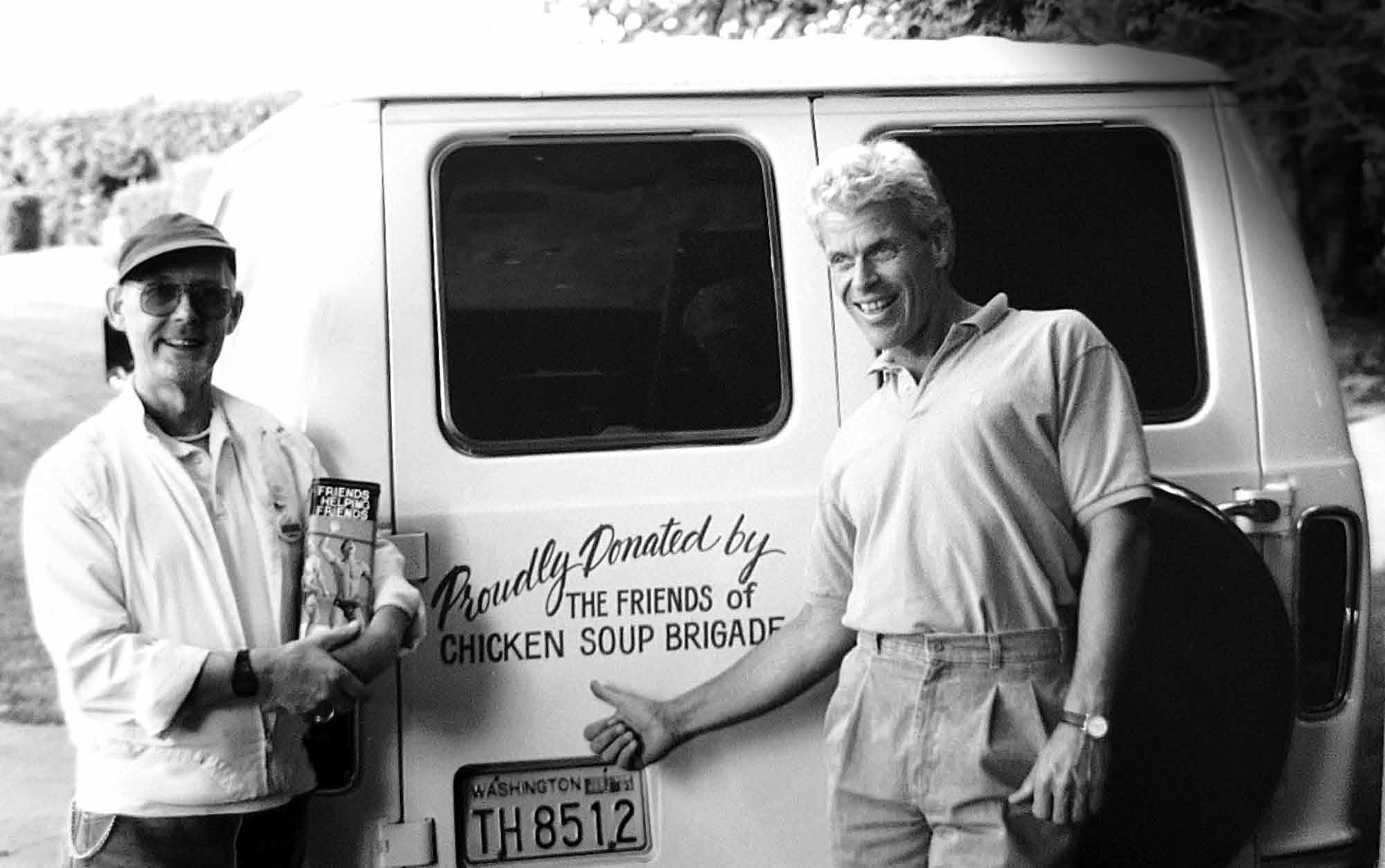
The clinic volunteers had formed several committees to take care of various tasks. The Outreach Committee met in December of 1982 to discuss ways the clinic could connect with and help people who were becoming ill (whether with AIDS
or other disabling conditions). A proposal was launched to form a “buddy network,” similar to one that had been organized in New York by the Gay Men’s Health Crisis. SGC’s equivalent was dubbed the Chicken Soup Brigade, with the intention of providing practical support — transportation to
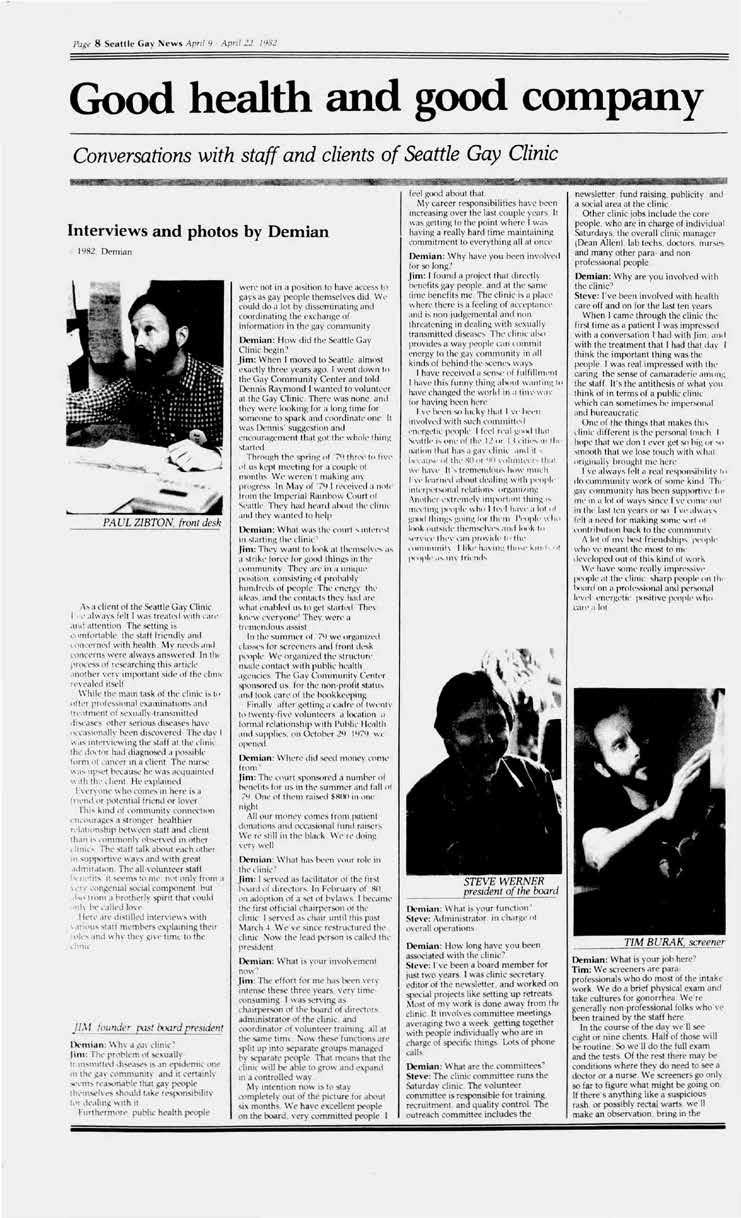
doctor’s appointments, help with grocery shopping, preparing meals, housecleaning, etc. — for Gay men who were unable to get around on their own and who did not have family members or partners who could help them. Local physicians were encouraged to call on the Brigade if they had patients who needed help.
At first, there was just a trickle of referrals, but soon a substantial number of requests for help were coming in, and the small crew of Brigade volunteers expanded. The Brigade was featured in a PBS TV documentary called Diagnosis: AIDS, which was aired nationally.
Eventually a special volunteer coordinator was needed to handle requests and logistics. In 1986, the clinic decided to hire a full-time, paid coordinator. As the Brigade grew, it split off from the clinic and formed its own nonprofit entity. The focus shifted from providing a variety of supportive services to preparing and delivering meals, and, over the years, the Brigade’s mission expanded from serving people with AIDS to include others with disabling conditions. Now the Chicken Soup Brigade is a multimillion-dollar enterprise, with a large warehouse-size kitchen operation, located in Georgetown, that serves hundreds of shut-in clients in the Seattle area.
In 1984, the virus that causes AIDS was isolated. Originally called HTLV-III, it became known as HIV (human immunodeficiency virus). By 1985, a test was developed to identify HIV in the bloodstream, and Seattle became one of the first cities in the US to pilot this test. The Health Department contracted with Seattle Gay Clinic to provide counseling and HIV testing for Gay men. By then, Country Doctor had moved its clinic from the 15th Avenue firehouse to a new clinic on 19th and Republican, and Seattle Gay Clinic moved with it.
During the early years of the HIV/AIDS epidemic, Seattle Gay Clinic volunteers were instrumental in organizing several nonprofit agencies that provided services beyond what traditional public health programs could deliver. In 1983, the Northwest AIDS Foundation (NWAF) came into being, originally with a mission to help coordinate interagency AIDS education and care efforts, and to raise funds for the needs of people with AIDS. NWAF’s first board president was a Country Doctor physician who also had served as volunteer
medical director for Seattle Gay Clinic. Over time, the NWAF grew its mission to include case management services and multimedia AIDS education programs targeting the general population and people at risk for HIV/AIDS infection. In 2001, the NWAF merged with the Chicken Soup Brigade and became Lifelong AIDS Alliance, allowing for administrative savings and enhanced fundraising capabilities.
Seattle Gay Clinic volunteers also were key movers in forming the organization Shanti Seattle. Based on a model created in San Francisco, the program provided emotional support for people living with AIDS and their families, partners, and caregivers. SGC paid for four volunteers to go to San Francisco for training, and those volunteers came back and formed a large network of emotional-support volunteers.
At about the same time, SGC volunteers participated in forming the Seattle AIDS Support Group, which facilitated group meetings of people living with AIDS and/ or HIV. That organization filled the rooms of a large Capitol Hill mansion called Dunshee House with support groups and educational activities, eventually including substance-abuse recovery groups in its menu of services. It currently operates as part of the organization Peer Seattle.
Legacy
Seattle Gay Clinic continued to provide services until 2004, when its board decided to dissolve and end its activities. The Health Department then began contracting with Gay City Health Project (now called Seattle’s LGBTQ Community Center), which carries on the tradition of providing free or low-cost services in a communitybased setting.
So, from simple, grassroots beginnings in 1979, the Seattle Gay Clinic went on to establish itself as a peer to other Gayrun clinics across the country, rose to the unanticipated challenge of responding to the AIDS epidemic, formed significant partnerships with Public Health of Seattle & King County, and seeded several other vital organizations in the Seattle area.
Unfortunately, many of the SGC volunteers who spearheaded these efforts died during the early years of the HIV/AIDS epidemic. But their spirits live on in the legacy of activities that have helped to make Seattle a safer and healthier place for LGBTQ+ people to live their lives.
BY HANNAH SAUNDERS
SGN CONTRIBUTING WRITER
The Deaf Queer organization Visually Speaking is back at Pride events for another year, this time with an American Sign Language (ASL) lounge. The social space is intended for longtime and new signers and the disabled community as a whole to network, hang out, and learn from each other.
Visually Speaking will host its ASL lounge at Broadway/Capitol Hill Pride on June 29, and again at Seattle Center Pride on June 30. A “Signaroke” event will also take place on June 27 at the Crescent Lounge.
While Visually Speaking is not providing ASL interpreters at these Pride events, it does provide sign language instruction and hold events in social spaces, including ASL classes at Gay City: Seattle’s LGBTQ Center, and online classes geared toward the LGBTQIA+ community. Gillespie said the group works with and hires various Deaf Queers too.
Interpreters at Pride events can be beneficial for everyone: They ensure that members of the Deaf and hard-of-hearing community are fully included in and can engage in the festivities, and also allow hearing attendees a look into the Deaf community, promote empathy, and break down communication barriers.
Given Seattle’s rich and diverse Deaf community full of artists, and with many hearing ASL users in Seattle, learning the basics of signing can assist with building meaningful connections among the city’s residents.
“Learn ASL — a little goes a long way!”
Kellie Gillespie, an ASL instructor at Visually Speaking, told the SGN. “Listen and learn from Deaf folks.”
For more information on ASL classes visit https://www.visuallyspeaking.info/ links.
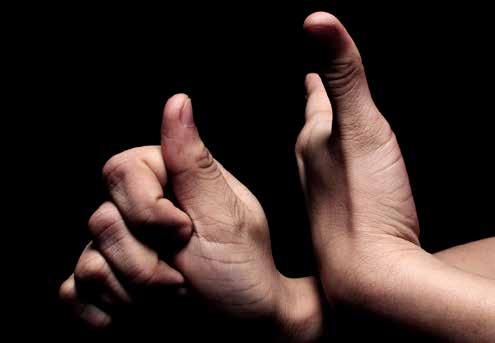
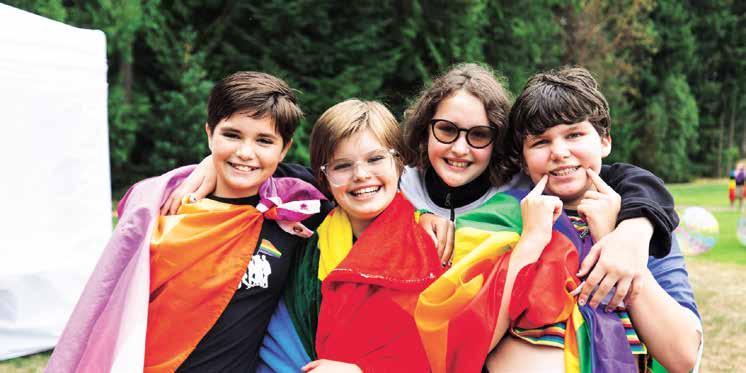
BY AUDREY OSCARSON SGN CONTRIBUTING WRITER
June 28
Trans Pride Seattle
5pm–10pm
Hang out and celebrate with fellow Trans people at Volunteer Park and enjoy the resource fair and many live performances and music. This is an all-ages event; masks are required. For more information or accessibility questions, visit https://transprideseattle.org.
June 29
PrideFest Capitol Hill
12pm–8pm
Celebrate 50 years of Pride at Cal Anderson Park on Capitol Hill, featuring a variety of food, vendors, and family programming and three stages of talent all day long. For a full schedule, visit https://www.seattlepridefest.org/ schedule/2024/6/29/pridefest-capitol-hill.
June 30
Beaverton Pride
11am–5pm
Beaverton Pride returns for its seventh year for a day full of fun activities and entertainment. With performances by Blonde Neon and Sir Cupcake’s Queer Circus, it’s sure to be a great experience. For a full lineup, visit https://www. pridebeaverton.org.
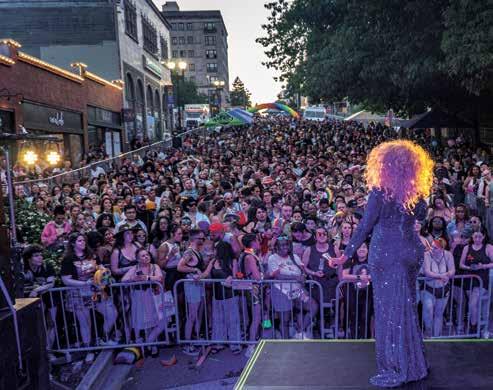
Seattle Pride Parade and PrideFest 11am–8pm
Join your community as Seattle celebrates 50 years of Pride! The parade kicks off in Westlake Park and travels up 4th Avenue toward Seattle Center, where hundreds of vendors, food and drink options, and live entertainment await.
For a full schedule, visit https://www. seattlepridefest.org/schedule/2024/3/28/ pridefest-seattle-center.
July 1
Rainier Pride Night, Tacoma Enjoy baseball and Pride at Rainier Pride Night. Tickets include a free Pride shirt.
Part of the proceeds go to Oasis Youth Center in Tacoma. To purchase tickets, go to https://fevo-enterprise.com/event/ RPrideNight.
July 6
Bellingham Pride
July 6–7
Bellingham will host two days of special events to celebrate Pride, including a family picnic, an all-ages dance, and the Bellingham Pride Parade!
“From its humble beginnings consisting of six to eight ‘pop-up’ day shades in Fairhaven Park in 2002, Pride in Bellingham celebrates 22 years,” said Betty Desire of Bellingham Pride. “Twenty thousand ‘Hamsters joined in the revelry of Pride 2023, and we are well on the way to surpassing that attendance this year!”
For more information, including a list of all the Pride-themed events in Bellingham during June and July, visit https:// prideinbellingham.org/2024-events.
July 13
Tacoma Pride Festival
12pm–6pm
Tacoma Pride Festival is back and filling the streets with entertainment, food, and vendors. For those 21+, there is also a block party at the Mix, with DJs and drag performances. To learn more, visit https:// tacomapride.org/prideevents.
July 20
Kitsap Pride
Time TBD
Save the date! Kitsap Pride is back at the county fairgrounds on July 20. More information to follow; check https:// kitsappride.org/ for updates.
Portland Pride
July 20–21
Portland will host multiple Pride events, including the Waterfront Festival, the Trans Pride March, an alcohol-free Pride party, the Portland Dyke March, the Pride Parade, and Gaylabration, a 21+ dance party. To learn more, visit https://portlandpride. org/2024-portland-pride-official-events.
August 16
Grays Harbor
August 16–17
Kick off Grays Harbor Pride with a free all-ages dance, then come back the next day for the Pride Festival. Enjoy vendors, food, and family-friendly entertainment. Stay into the evening for the free drag show! For more information, visit https://opghc.com.

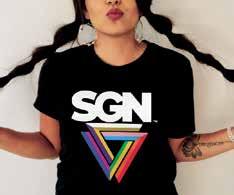
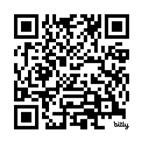
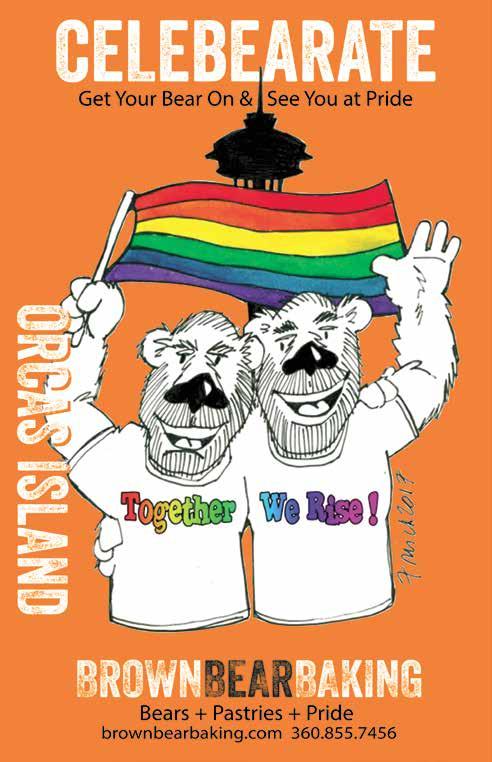
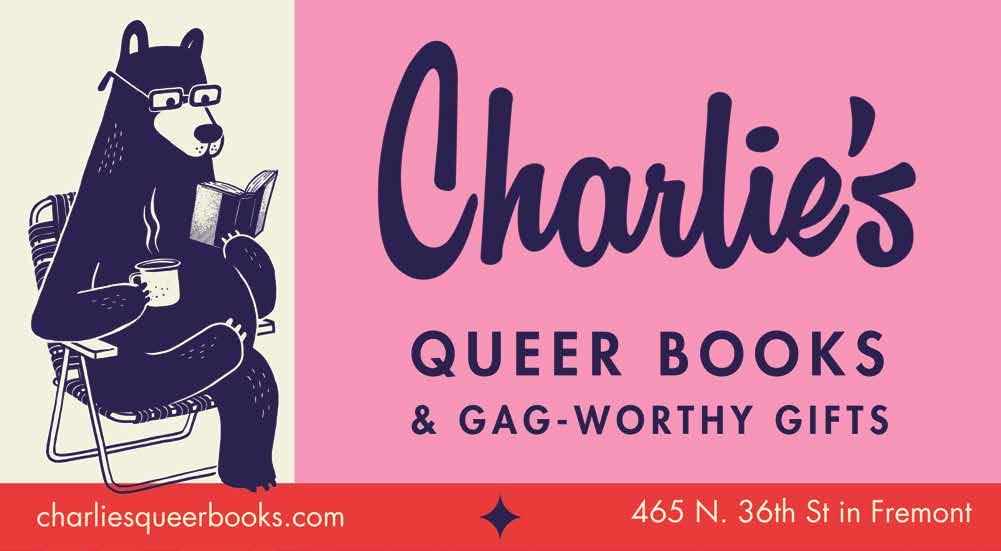
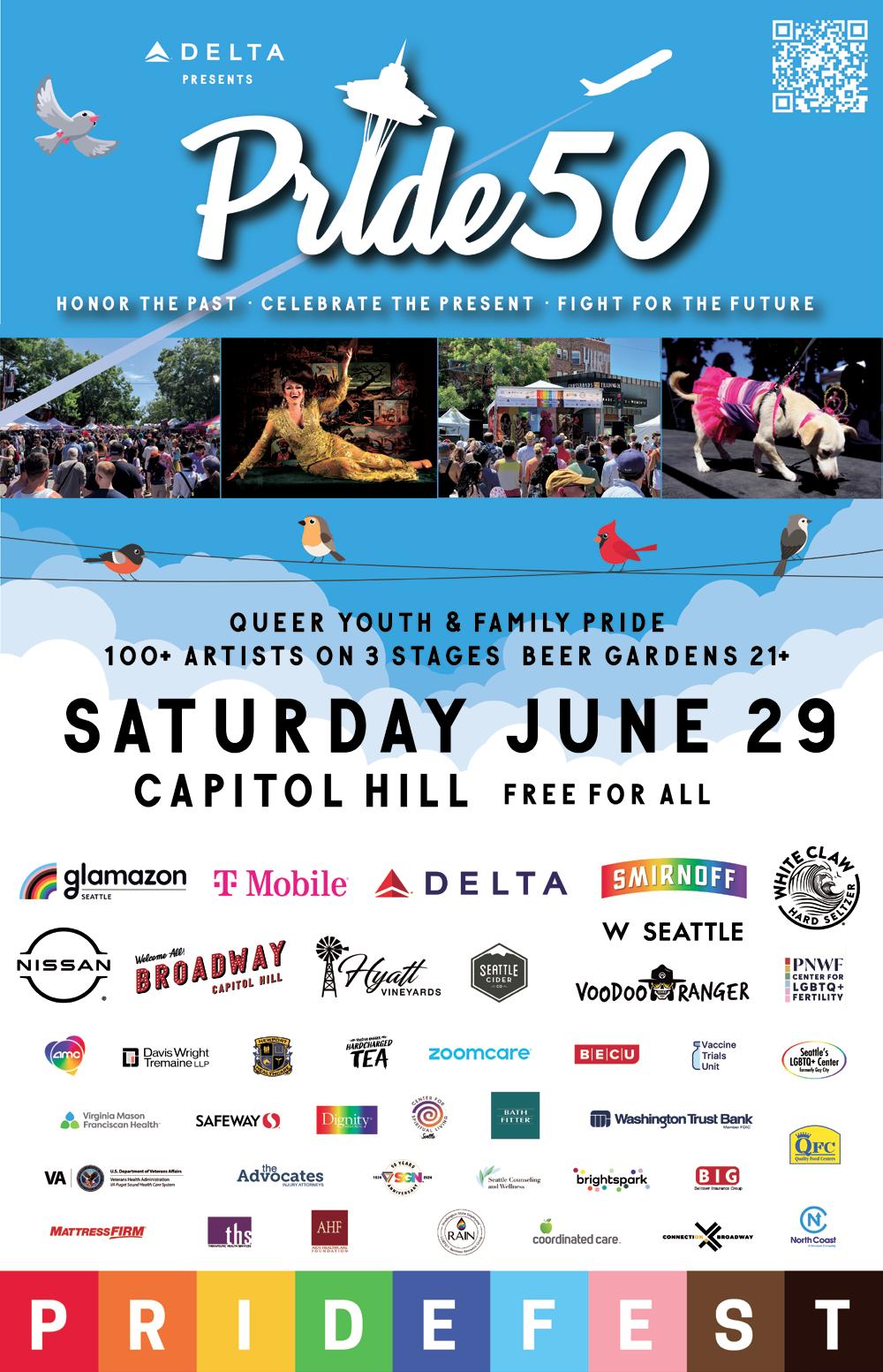
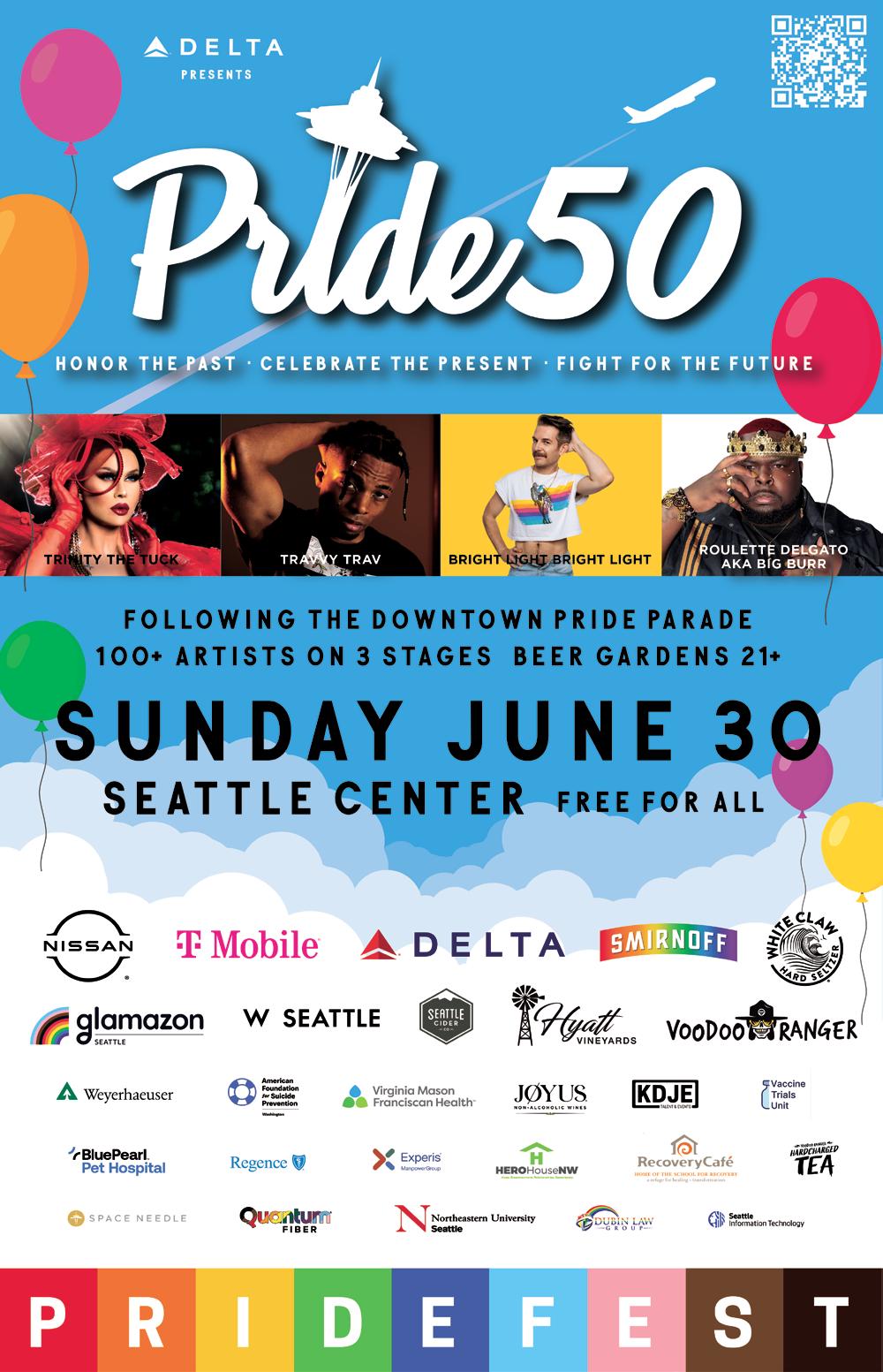
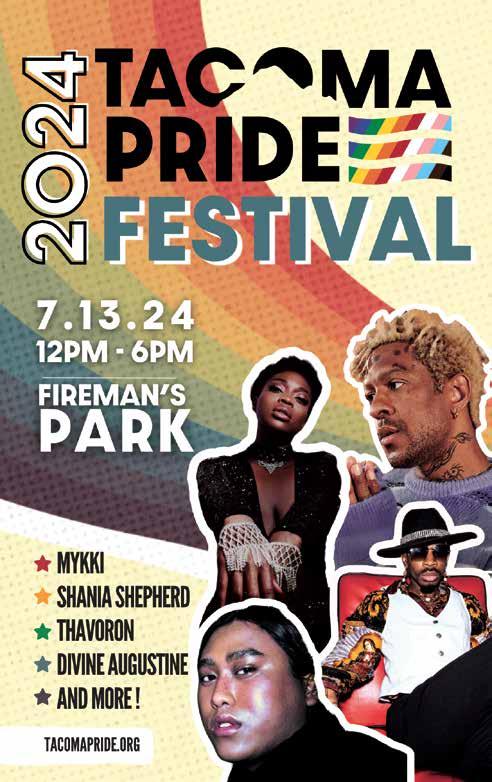
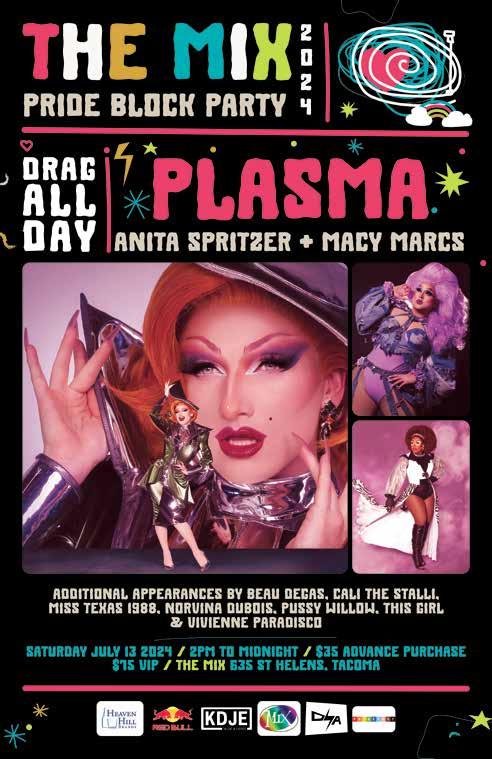


BY MK SCOTT SGN CONTRIBUTING WRITER

Ben Platt, a multi-award-winning Broadway and television star, is renowned for his standout performances in the Pitch Perfect series, the film adaptation of his Tony-winning role in Dear Evan Hansen, and the indie hit Theater Camp. On television, he starred as Payton Hobart in Ryan Murphy’s The Politician for two seasons, sharing the screen with icons like Jessica Lange, Bette Midler, and Judith Light.
Following a successful residency at the Palace Theatre on Broadway, Platt has launched a multicity tour to promote his latest album, Honeymind.
Engaged to TV star Noah Galvin and still just 30 years old, Platt shared insights with me during a recent phone conversation.
On the Palace:
“It’s truly been an unbelievable dream. Being part of the Broadway community, which I’ve loved and been a part of for so long, but now being recognized as myself and sharing my own perspective while presenting my new record live [has] been wonderful. Having so many friends join me to sing has felt like a beautiful culmination of various aspects of my career converging. Everyone has been incredibly supportive and enthusiastic about the experience.
“Of course, the most special moment for me was singing with Noah, because he’s my person, and we sing together all the time. Doing it on the night of my album release made it even more memorable and beautiful to share that moment with him.”
On the tour
“The concert tour started on June 18, and we’ve had a great opportunity to fine-tune the show here at the Palace. There will be some tweaks to the set list and design to better suit the tour, moving away from a Broadway-focused format. However, we plan to bring [on the road] largely the same show that we’ve been presenting here. I’m thrilled to have a well-prepared production to showcase in some truly stunning venues across the country.”
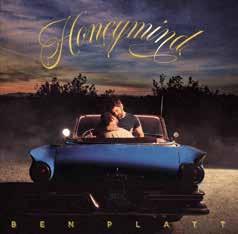
On the album Honeymind
“The album was released last week. It exists in a sonic space influenced by Americana, Simon and Garfunkel, Fleetwood Mac, and James Taylor, blended with a distinctly Queer perspective, which reflects my own viewpoint.
“The songs delve into themes of relationships, particularly ours, with a focus on love and navigating adulthood, as I turned 30 during its creation. Noah serves as a muse for many of the love songs, but the album also explores my personal growth and comfort in this phase of life, largely shaped by his support and our relationship.”
On Noah Galvin
“We’re getting married this fall. We first met when we were around 19 and 20 years old while working on a comedy web series that unfortunately never aired. Introduced by mutual friends involved in the series, we hit it off right away.
“Throughout our twenties, our relationship was on and off — sometimes friends, sometimes more. Then, around late 2019 to early 2020, things changed, and we’ve been together ever since. Our relationship started just before the COVID quarantine began, which was a challenging time for everyone. However, for us, it was a turning point. After circling around each other for
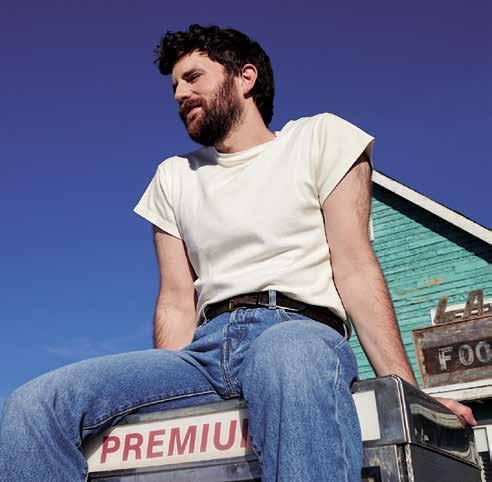
a long time, being forced to focus solely on each other without distractions showed us that we had something special.”
On Payton (The Politician) vs. Evan (Dear Evan Hansen)
“I enjoyed both roles for different reasons. Evan was incredibly fulfilling because it realized my lifelong dream of originating a musical role, allowing me to utilize all my skills in my favorite art form: theater. On the other hand, playing Payton was enjoyable due to his confidence, aggression, ambition, and strength — qualities Evan lacks, as he battles self-hatred and weakness.
“Switching between these characters provided a satisfying contrast. They both sing, which suits me well, and struggle to connect, but in distinct ways: Payton connects superficially yet struggles deeply due to his political role, while Evan finds superficial connections challenging but harbors a profound capacity for love and connection underneath.”
AEG Live Presents’ “Ben Platt: The Honeymind Tour” (with very special guest Brandy Clark) hits Seattle’s Benaroya Hall on Saturday, July 27. For tickets, visit https://seattlesymphony.org COURTESY IMAGE

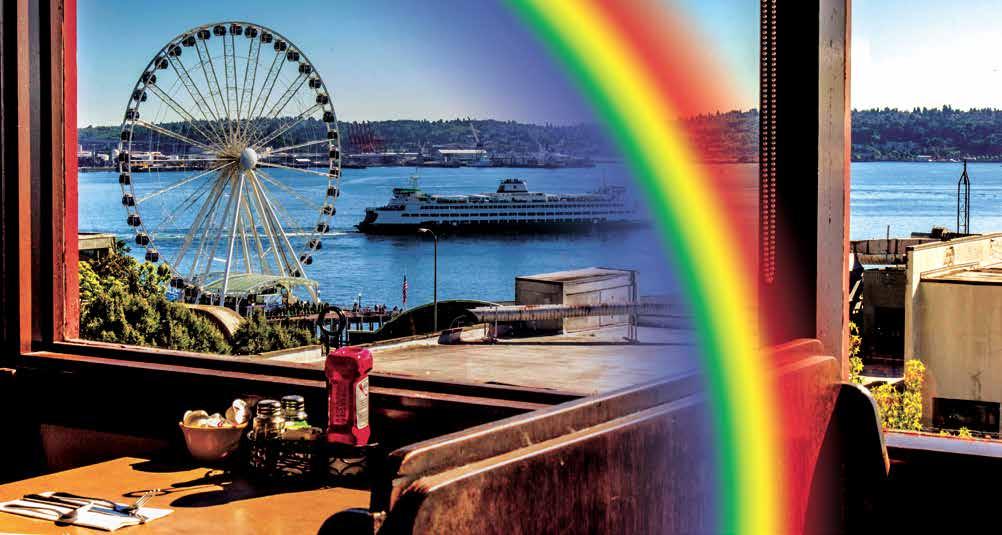


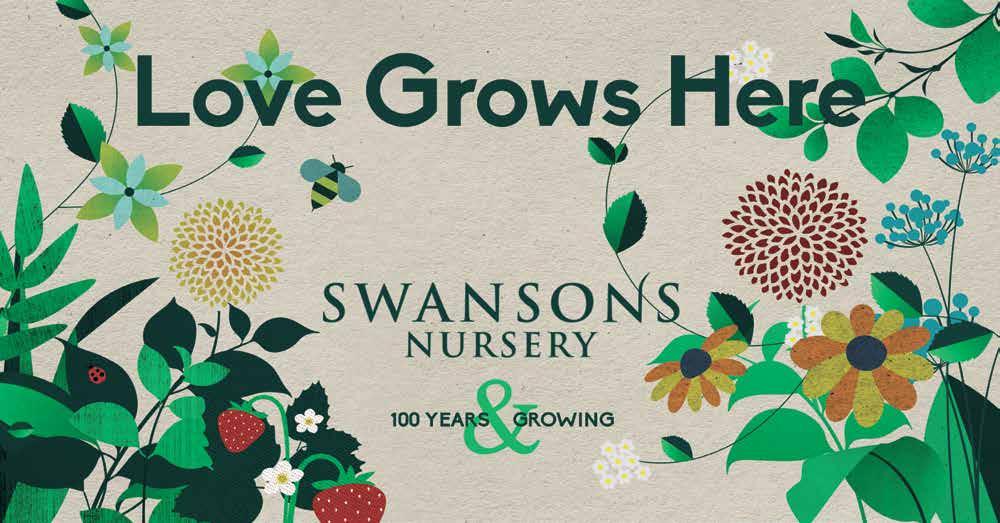


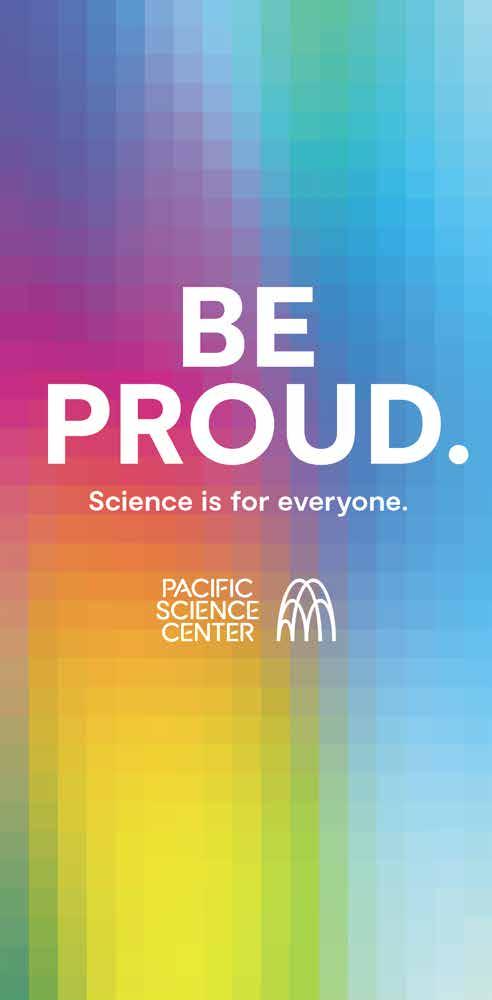

BY HANNAH SAUNDERS SGN CONTRIBUTING WRITER
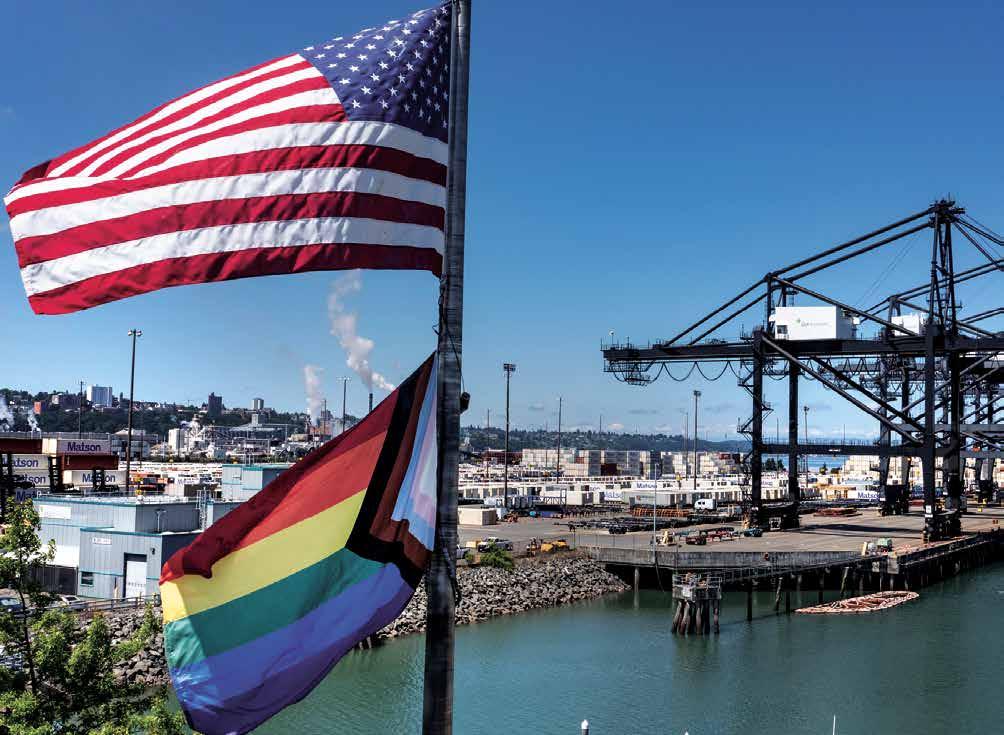
As hate crimes against Queer people ravage the nation, like the murder of Reyna Hernandez — a Transgender Latina who owned Reyna’s Hair Salon in Renton, previously reported on by the SGN —Tacoma has seen a different trend that’s been challenging to tackle: the stealing of Pride flags.
Since the start of the year, the city has seen two “anti-homosexual offenses.” Both occurred at single-family residences in late May: one was malicious harassment and the other was larceny theft.
“Last year we had a rush of Pride flag vandalism and theft. There was a ‘challenge’ on TikTok called ‘Capture the Flag,’ and [it involved videoing] yourself doing this,” Sgt. Kelly Custis, LGBTQIA+ liaison at the Tacoma Police Department (TPD), told the SGN. “When I reached out to the victims, none of them reported any specific reasons they believed this happened to them as an individual. None of them reported any other concerns or similar instances of this happening to them.
Hate crimes against the Tacoma LGBTQ+ community in 2023 totaled 34 offenses, and June saw the biggest spike in crimes, totaling 9. Of all 34, one was assault while another was blackmail. Six of the crimes were malicious harassment; 11 were larceny and theft; and 15 were damage, destruction, and vandalism.
Det. William “Mac” Muse agreed that the theft of Pride flags has been a prevalent crime against the LGBTQ+ community in Tacoma.
“Those who see it as a harmless act don’t always understand the implications behind it,” he said. “The act sends a hurtful message to the owner of the flag. The act tells the owner [they] are not welcome in the neighborhood. The act tells the owner [they] are not accepted as a part of the community. The owner is left with the fear they will be targeted again should they demonstrate pride in who they are or who they support.”
When flags are stolen, Custis forwards a list of those impacted to the city for replacement flags if they are requested, and refers them to the Rainbow Center in Tacoma, a community center and resource hub for the Queer community in South Puget Sound
that provides services to around a thousand people annually, if they need additional support. Custis encourages those with Pride flags to place them near a light source and higher up, as routine flag theft prevention tips.
Efforts to collaborate
Part of Custis’s work consists of outreach under the Safe Place Initiative, in which businesses can request to be in the program.
“I respond to requests [from] local businesses for these decals and a welcome letter explaining the program and their commitment to providing a safe place to hate crime victims,” Custis said.
Custis has been responding to questions and concerns from these businesses for about a year, and has had only a couple reach out. He said no one from the Queer community has contacted him about safety and trends of rising hate crimes in Tacoma.
The TPD has been involved with LGBTQIA+ awareness training through the Washington Criminal Justice Training Commission since 2019. The training offers current information about laws, terminology, and the historical context regarding the relationship between the Queer community and law enforcement.
The department has partnered with the Rainbow Center of Tacoma, whose members previously provided in-person shift training to officers about the proper uses of pronouns, and information about gender identity and expression.
“I believe continued conversations and interaction between TPD and the community will only strengthen the way we create a safe environment as well as enforce and investigate crimes in a fair and impartial manner,” Custis said.
Within the next year, Custis said, he hopes to engage with other law enforcement agencies and their LGBTQ+ liaisons on additional training and ways to better serve the community.
“Law enforcement has come a long way since the days of the [Stonewall] riots,” Muse said. “The manner in which communities are policed has evolved over time and changed for the better.”
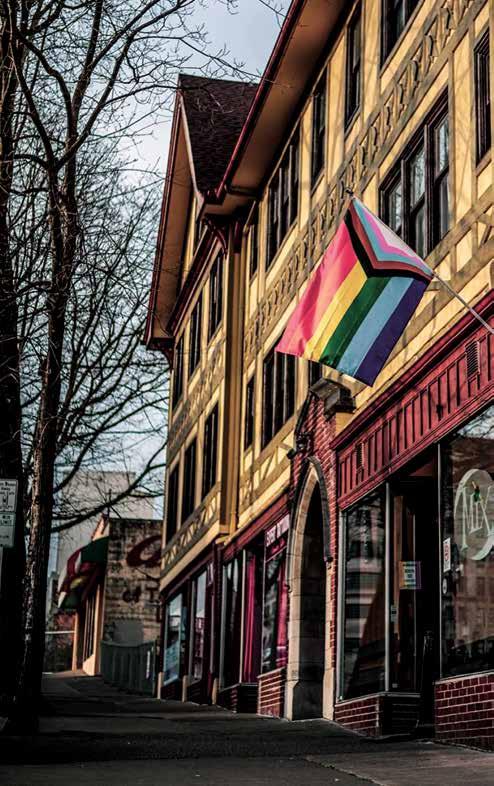
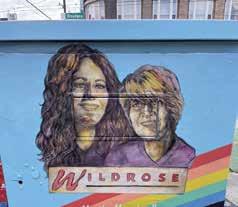
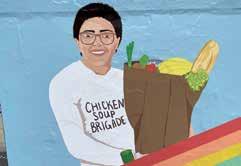


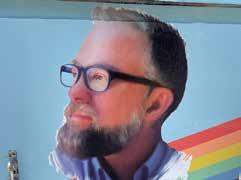
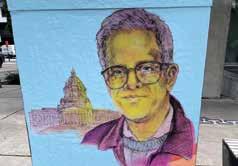
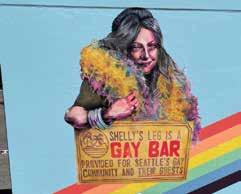
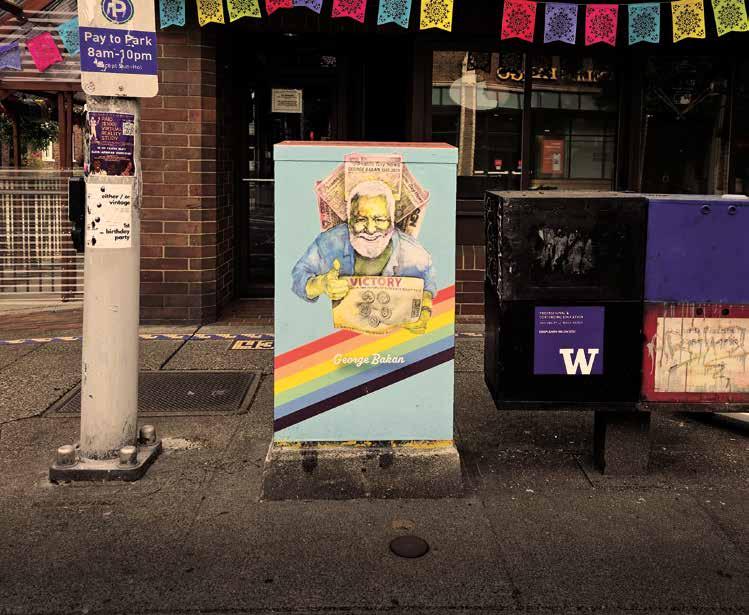
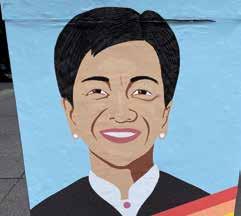
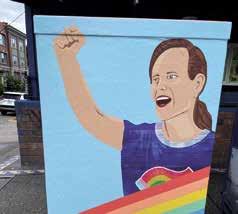
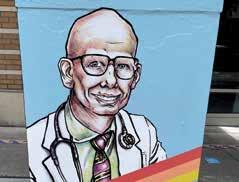
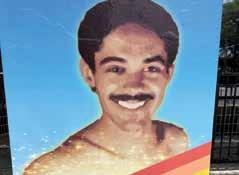
Visitors to and residents of the Capitol Hill neighborhood might have noticed a new feature in the last weeks: signal box wraps featuring a few of Seattle’s LGBTQ+ heroes. Designed with help from Bruce Fleming, these displays by local Queer artists portray those who have made advancements in Seattle for Queer people. From bar owners to state representatives, these leaders helped foster community and acceptance in Washington state.
These are the subjects, listed from south to north along Broadway:
At the corner of Pike and Broadway is a portrait of Martha Manning and Shelly Brothers, the owners of Seattle’s longestrunning Lesbian bar, the Wildrose. Since 1985, the Wildrose has been a place of community for Queer women. With weekly events, it is a fun and safe space for regulars and newbies alike.
Carol Sterling, whose portrait is featured at Pine and Broadway, is most known for her involvement with the Chicken Soup Brigade. As its first paid staff member, she spent years dedicated to providing services and comfort to those suffering from AIDS. Under her guidance, the Chicken Soup Brigade grew and was able to reach even more people. She headed fundraisers and recruited volunteers to keep up with the ever-growing demand.
Vickie Williams’s portrait is featured in front of Seattle Central College. She ran Washington’s only Black-owned bookstore, providing spaces for Black people to connect with their heritage and be unapologetically themselves. LEMS Life Enrichment Bookstore in Columbia City has had a valuable impact on many in the community.
At the intersection of Broadway and Howell, a utility box honors the openly LGBTQ+ members of the Seattle City Council: Sally Clark (former Editor at SGN ), Tom Rasmussen, Sherry Harris, Cheryl Chow, and Tina Podlodowski.
At Howell and Broadway is a portrait of Aidan Key, founder of Gender Diversity and advocate for Trans youth. Over the years he has worked with families and children to help navigate their transition, provided resources, and hosted conferences to educate families and professionals on issues Trans youth face and how to best support them. He is also the author of multiple books, including Trans Children in Today’s Schools
Cal Anderson, after whom a park is named, is featured at the corner of Denny and Broadway. As the first openly Gay elected official in the Washington House of Representatives and Senate, Anderson fought for civil rights, gun control, and funding for education.
On the corner of John and Broadway, Shelly Bauman is pictured with an artistic rendering of the sign she hung outside the bar she started, Shelly’s Leg. The sign, which reads “Shelly’s Leg is a Gay bar provided for Seattle’s Gay community and their guests” encapsulates the energy of the place in its prime. Though it was only open for a few years, it is heralded as Seattle’s first disco and welcomed people of every background and identity.
Judge Mary Yu, whose portrait is featured at Thomas and Broadway, is Washington’s first openly Gay justice, serving on the Washington State Supreme Court. She officiated the first same-sex marriage in Washington state and was influential in the Arlene Flowers decision, which made it illegal for Washington businesses to discriminate against customers for their sexual orientation.
Marsha Botzer, whose portrait is located at Harrison and Broadway, is the founder of Ingersoll Gender Center and has been active in multiple groups promoting the rights of Trans people. Through Ingersoll, she has been able to give Trans and gender-nonconforming people support and community since 1977.
At the corner of Republican and Broadway is George Bakan’s portrait. The former publisher at the SGN, Bakan used journalism to advocate for Queer people, and raise awareness of issues of important to them. During the AIDS crisis, the paper was a vital resource, including publishing muchneeded obituaries. Bakan also founded the Seattle AIDS Action Committee, which provided seed money to distribute condoms in bars, sent people with AIDS to marches in Washington, DC, and organized vigils and fundraisers.
Bob Wood, who is featured at the corner of Mercer and Broadway, is a physician and activist for people living with HIV/AIDS. Throughout his career, he has worked to help them get the care and support they need. He was the director for King County’s HIV/AIDS program for over two decades.
Brian M. Day, whose portrait is at the corner of Roy and Broadway, began his activism after being diagnosed with HIV himself. Since then, he has focused his work on people of color living in poverty, HIV issues, and LGBTQ+ rights. He served on the governors AIDS Advisory Task Force and helped to push for an AIDS hospice unit. Toward the end of his life, he set aside money to be used as a scholarship fund for Gay men of color to pursue further education.
